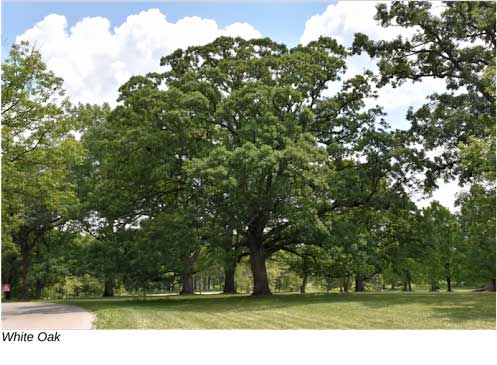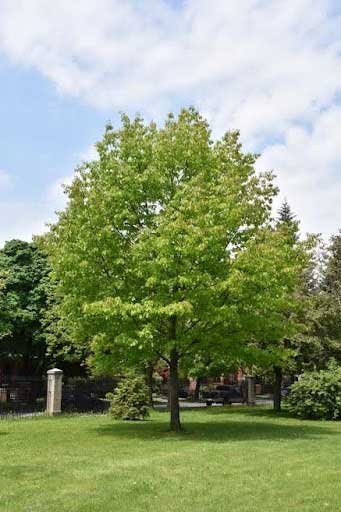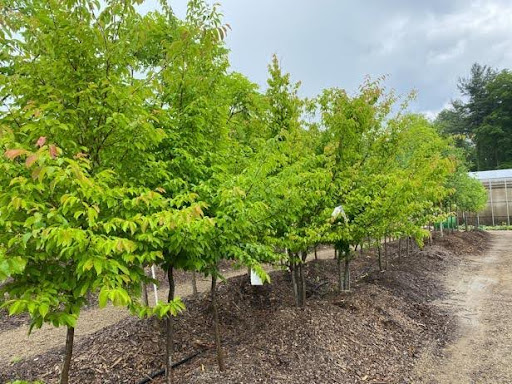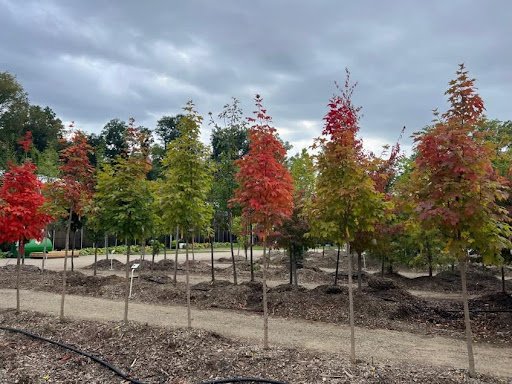Negative Consequences of Planting Monoculture Trees
An increasing number of individuals are becoming aware of the negative consequences associated with the practice of planting monoculture trees, which involves planting a single type of tree in a particular area. Historical instances, such as the devastation caused by Dutch Elm Disease in elms, the Emerald Ash Borer in ash trees, and Oak wilt in oaks, have demonstrated the vulnerability of monoculture plantings to diseases and pests.

Consequently, it is crucial to explore alternatives to monoculture planting and understand the benefits of doing so. One effective approach to enhancing plant diversity in your landscape is through the utilization of native trees.
By increasing tree diversity, the transmission of diseases and pests among trees can be eliminated. Monocultures allow diseases and pests to spread freely from one tree to another, with little to no impediments. In contrast, a diverse array of trees in your landscape can establish natural barriers between hosts and pests.
Advantages of Natives for Wildlife
In addition to promoting diversity in the Michigan landscape, native trees offer numerous advantages. Planting native trees can attract wildlife to your yard by creating habitats and providing a source of food. If your aim is to attract various bird species, planting native trees can be particularly beneficial. Moreover, native trees play a vital role in supporting pollinators. For instance, oak trees serve as an important food source for pollinators in the spring, offering much-needed sustenance after a long winter.
White Oak
A massive and stately shade tree with an artistic, wide-spreading habit of growth and good fall color, only for the largest of landscapes; extremely tough but rather slow growing, plant for the enjoyment of future generations

Quercus alba
Height: 90 feet
Spread: 70 feet
Sunlight:
Hardiness Zone: 4
Red Oak
A beautiful and artistic shade tree with a picturesque loosely pyramidal habit of growth and good red fall color; fast growing for an oak, an extremely tough and adaptable tree, best for larger landscapes; prefers loose, slightly acidic soils

Quercus rubra
Height: 70 feet
Spread: 70 feet
Sunlight:
Hardiness Zone: 3
Advantages of Natives for Us
Native trees not only benefit animals but also provide various advantages for humans. They offer shade to seek refuge under on hot, sunny days, and native shade trees can help lower energy costs for homes.

Furthermore, native trees have the potential to become cherished legacy trees that can be enjoyed by future generations.
Natives at Everett’s Gardens
When selecting native trees, Everett’s Gardens is an excellent choice. We offer a broad range of native trees that have been locally grown from seed and are true to their original form. Our Gardens provides multiple sizes, ranging from a three-gallon pots with trees measuring 3-4 feet in height to mature trees with an 8-inch trunk. Visit Everett’s Gardens today to consult with our knowledgeable plant specialists and find the perfect native tree for your landscape.


List of Natives at Everett’s Gardens
(We house more than the listed Natives, if you have any questions, please call us at (616)438-1592.)
- Red Maple (Acer rubrum)
- White Oak (Quercus alba)
- Sugar Maple (Acer saccharum)
- White Pine (Pinus strobus)
- American Beech (Fagus grandifolia)
- Renaissance Oasis® Paper Birch (Betula papyrifera ‘Oenci’)
- American Hornbeam (Carpinus caroliniana)
- Eastern Red Bud (Cercis canadensis)
- Espresso™ Kentucky Coffeetree (Gymnocladus dioicus ‘Espresso-JFS’)
- Common Pawpaw (Asimina Triloba)

